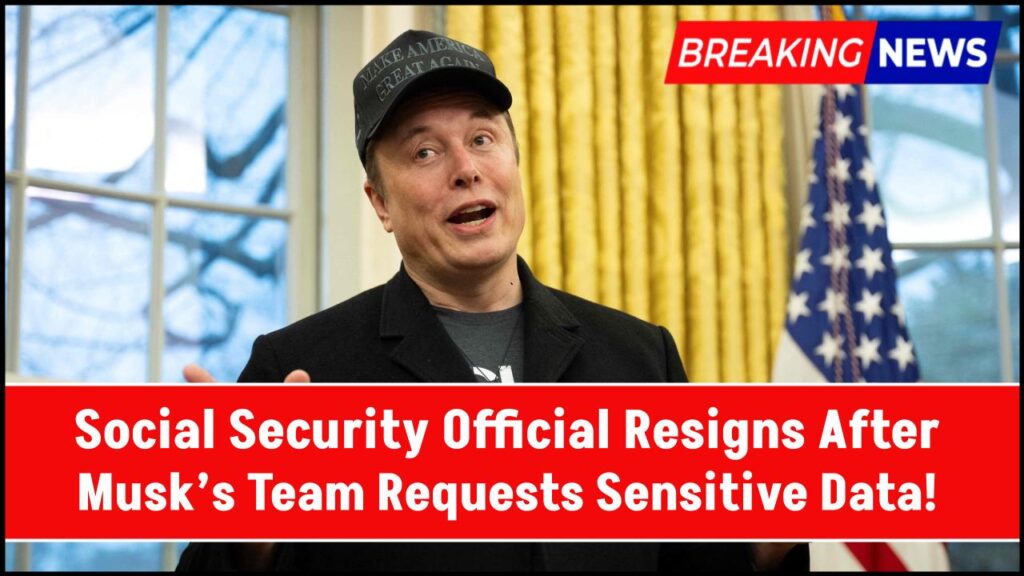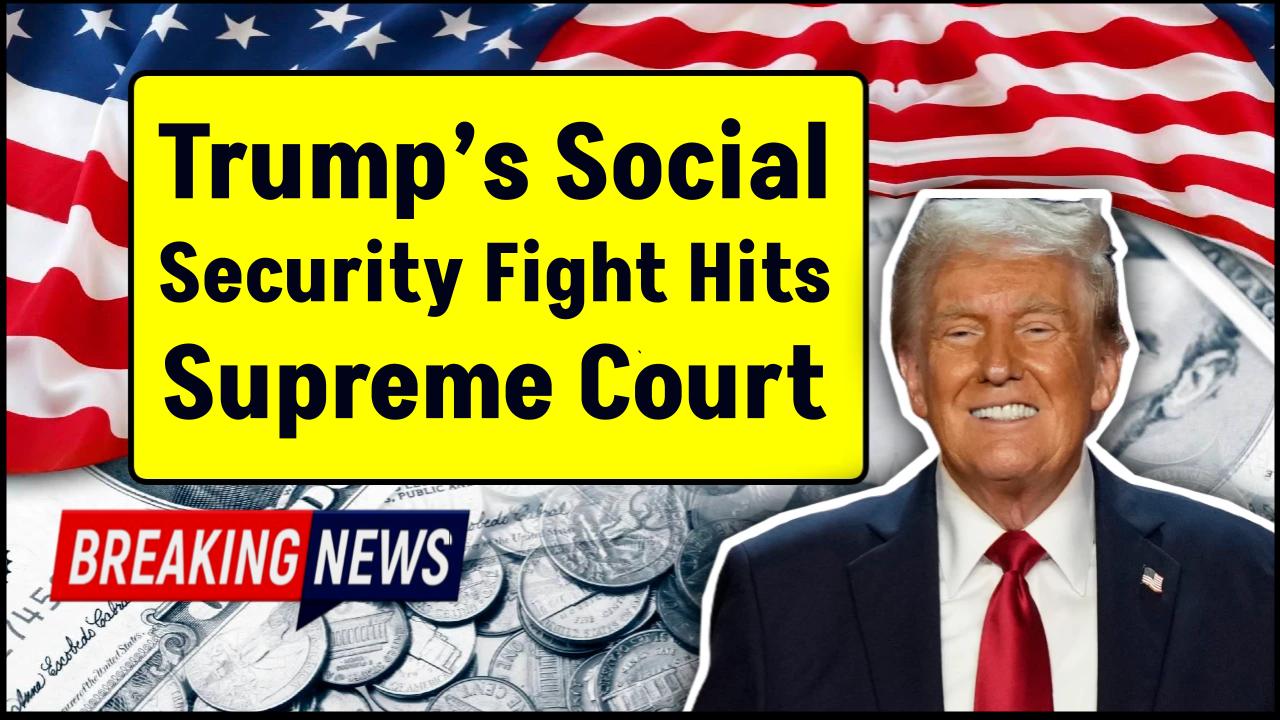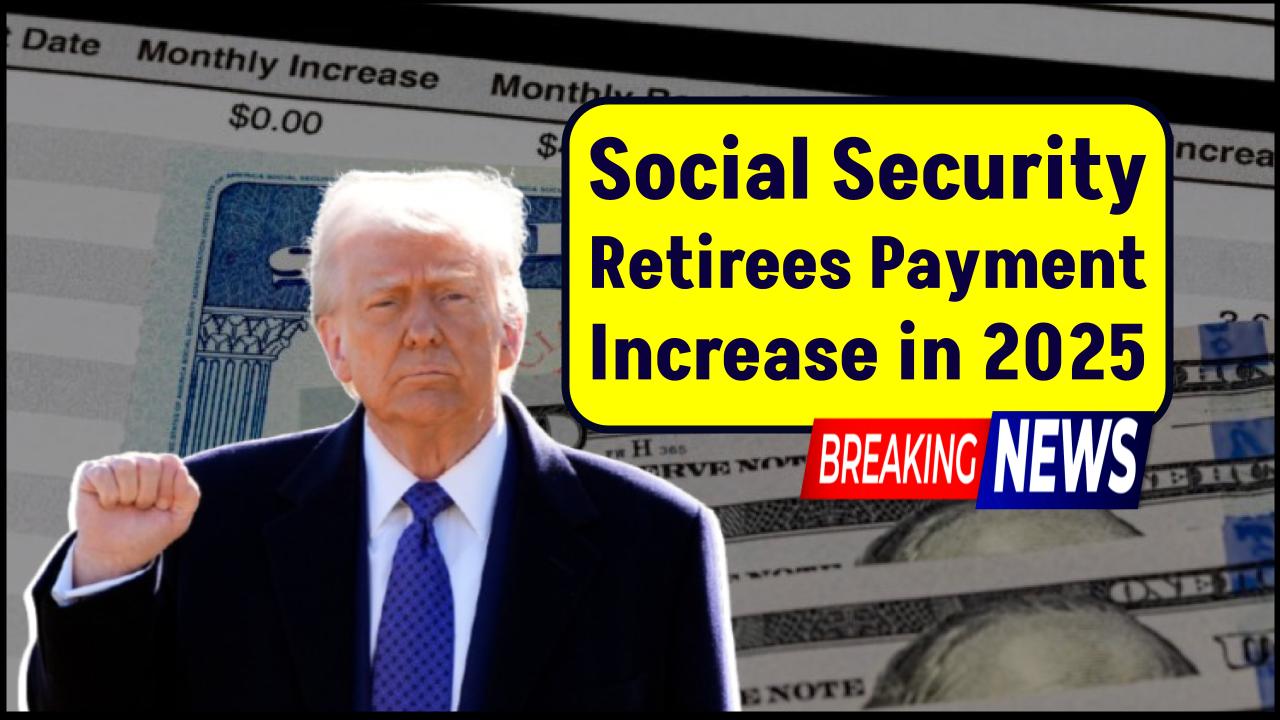Top Social Security Official Resigns After Musk’s Team Requests Sensitive Data
Top Social Security Official Resigns: In a stunning turn of events, Michelle King, the Acting Commissioner of the U.S. Social Security Administration (SSA), resigned on February 16, 2025, after refusing to comply with a request from DOGE, the Department of Government Efficiency—an initiative spearheaded by Elon Musk under President Donald Trump’s administration. This development has ignited fierce debate across the nation about data privacy, government transparency, and the limits of technocratic oversight.

DOGE’s goal is to improve government efficiency and eliminate waste. However, when Musk’s team requested access to sensitive personal data from millions of SSA recipients, King refused, citing legal constraints and privacy risks. Her resignation has since set off a firestorm of legal, political, and ethical controversy.
Top Social Security Official Resigns
| Topic | Details |
|---|---|
| Resigned Official | Michelle King, Acting Commissioner of SSA |
| Reason for Resignation | Refusal to grant DOGE access to sensitive Social Security data |
| Requesting Party | DOGE (Department of Government Efficiency), led by Elon Musk |
| Legal Action | Federal court blocked DOGE from accessing SSA data (Reuters) |
| Replacement | Leland Dudek, a DOGE-aligned SSA anti-fraud official |
| Nominee for Permanent Commissioner | Frank Bisignano |
| Concerns Raised | Data privacy, overreach, government surveillance, ethics |
| Official SSA Website | ssa.gov |
Why Did Michelle King Resign?
Michelle King was a 30-year veteran of the Social Security Administration and widely respected for her integrity and expertise. But when DOGE demanded broad access to SSA’s internal databases, including personal records such as income, addresses, medical histories, and even biometric data, King said “no.”
Her refusal wasn’t just about principle. It was rooted in federal privacy laws that protect Social Security recipients. She expressed concern that unchecked access could expose Americans to identity theft, surveillance, and misuse of their data.
“My duty is to the American people, not political pressure,” King stated in her resignation letter, which was later leaked to the press.
What is DOGE, and What Was It Trying to Do?
The Department of Government Efficiency (DOGE) was created with good intentions: to reduce fraud, eliminate redundancy, and save taxpayers money. Led by Elon Musk and approved by President Trump in early 2024, DOGE has sweeping authority to audit, analyze, and recommend reforms across federal agencies.
But critics say it’s overstepping.
DOGE sought access to SSA records to flag fraudulent claims and remove deceased or duplicated beneficiaries—an effort Musk’s team claims could save the government over $120 billion in the next 10 years. However, privacy experts and watchdogs have warned that mass data access without robust safeguards could lead to misuse, discrimination, and constitutional violations.
What the Courts Have Said
The matter quickly escalated to the courts.
In April 2025, the U.S. Court of Appeals ruled against DOGE, upholding an injunction that prevents the agency from accessing SSA’s sensitive databases. The court cited the Federal Privacy Act and emphasized that access to personal data must remain restricted to vetted SSA personnel only.
This legal precedent will likely shape how federal agencies handle personal data in the future.
Who Replaced King—and What’s Next?
After King’s resignation, Leland Dudek, a senior figure in SSA’s anti-fraud department and DOGE supporter, was appointed Acting Commissioner. President Trump has since nominated Frank Bisignano, a former finance executive and technocrat, for the permanent role.
Many in Congress and civil rights organizations are pushing for a Senate confirmation hearing that will rigorously evaluate Bisignano’s stance on data privacy and agency independence.
Why This Matters to You: What’s at Stake?
This incident isn’t just about one resignation—it’s about the future of your personal data.
Every working American contributes to Social Security. Your work history, earnings, and benefits are stored in SSA databases. If government initiatives like DOGE gain broader access, the potential for data breaches, unauthorized surveillance, and targeted profiling increases.
Here’s what professionals and citizens can do:
Review Your SSA Profile
Log in to SSA.gov to check your data accuracy and security settings.
Understand Your Rights
Know your rights under the Privacy Act of 1974, which limits how federal agencies collect, use, and share personal information.
Get Involved
Contact your local representative or senator and voice your concerns. Data privacy is not a partisan issue—it affects everyone.
Follow Updates from Credible Sources
Track developments through reputable news outlets and official government channels.
IRS Stimulus Check Worth $2,600 Coming in 2025: What You Need to Know
The Bigger Picture: Privacy vs. Efficiency
The resignation of Michelle King marks another chapter in the ongoing debate: Should government efficiency come at the cost of individual privacy? DOGE’s mission is noble—cutting fraud and saving money. But when even the most seasoned public officials resign over privacy concerns, it’s a red flag. This isn’t just bureaucracy; it’s a civil liberties issue.
As AI and data analytics become more central to government operations, the line between useful innovation and overreach becomes thinner. Who holds the keys to your data? And what checks are in place?
FAQs About Top Social Security Official Resigns
Why did Michelle King resign?
She refused to grant DOGE broad access to Social Security data, citing privacy violations and legal concerns.
What kind of data was DOGE requesting?
Personal details including addresses, income records, health information, and possibly biometric identifiers.
Is DOGE legal?
DOGE was established by executive order, but its actions are being scrutinized by courts and privacy experts.
Can my Social Security data be accessed without my permission?
No, under current federal law, only authorized personnel within SSA can access your data unless otherwise legislated.
What can I do to protect my SSA information?
Log in to your SSA account, update your contact info, enable two-factor authentication, and stay alert to phishing scams.








